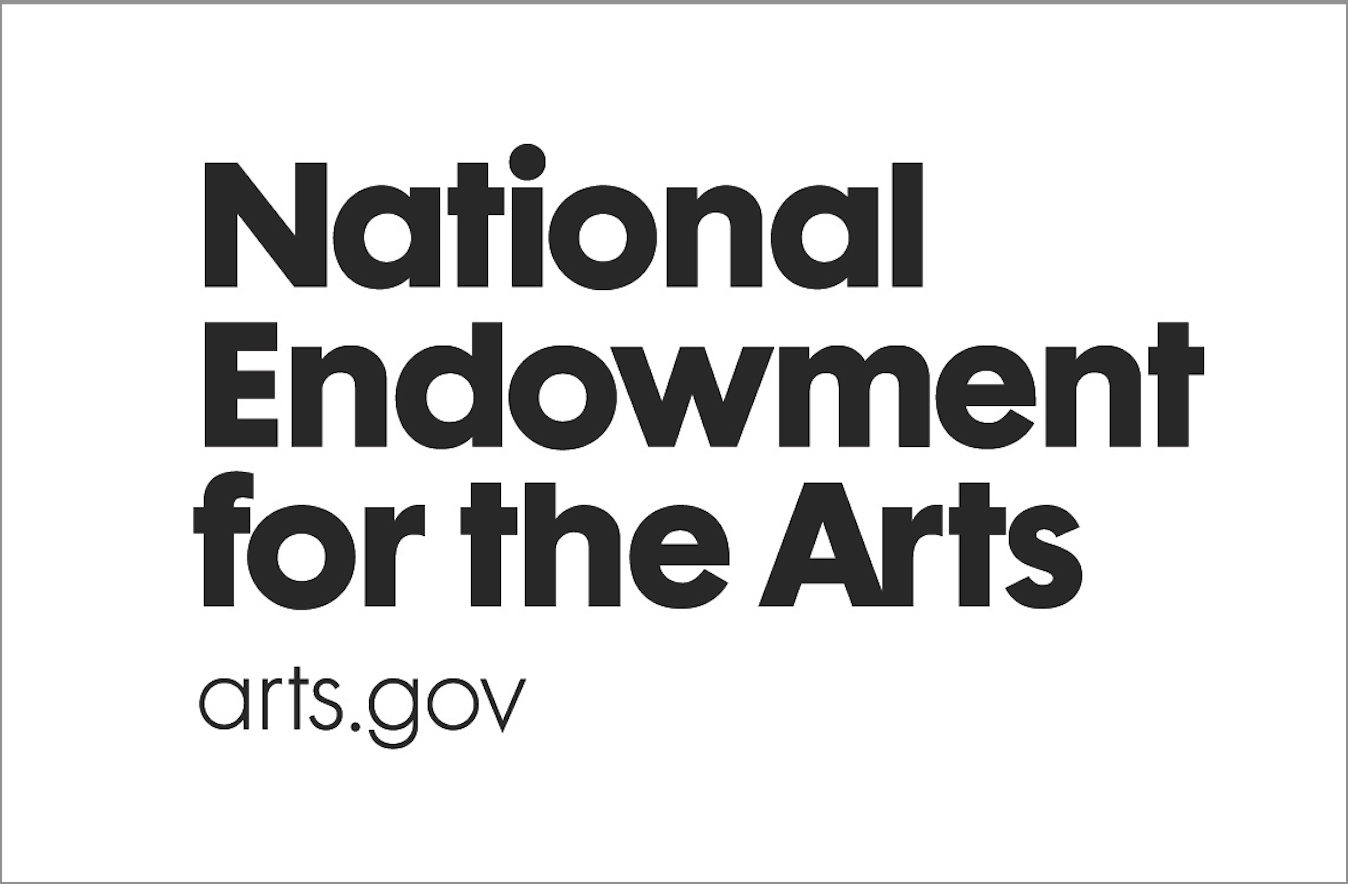In 2012, a project landed in my inbox. It was a translation assistance project for a company I knew spottily — a Brooklyn based, artist-built and civically pro-active group called the Civilians. After gaining familiarity with their work, I fell in love with their mission and dove right in. In front of me were a series of transcripts of real-life stories from inmates at El Buen Pastor, the national women’s prison in Bogota, Colombia. The women told stories of their imprisonment, of their current circumstances and, most importantly, of the prison’s most famous event — an annual beauty pageant. I knew at that point that this project would shape up to be something special.
Helmed by Steve Cosson, with book by José Rivera (“The Motorcycle Diaries,” “Cloud Tectonics,” “Marisol”) and music by Héctor Buitrago (formerly of Aterciopelados, the Grammy Award winning Latin-rock/alternative group), “Another Word for Beauty” is the musical that was born from those interviews. It is the product of a collaboration that combines the Civilians investigative methods with Rivera’s deeply emotional multi-realism and Buitrago’s utterly alternative, esoteric, conjuring sounds.
“Another Word for Beauty” opened last week at Goodman Theatre in Chicago. In the midst of a heavy week of rehearsals, previews and last-minute tweaks José Rivera spoke to me about getting into the soul of this project.

Heather Velazquez (Maikelyn/Eva/Paramilitary), Stephanie Andrea Barron (Yolanda) and Socorro Santiago (Ciliana) in “Another Word for Beauty” at Goodman Theatre in Chicago. Photo Credit: Liz Lauren.
GEORGINA ESCOBAR: José, Can you tell me about your involvement with this project? How did it come about? What was the moment of inception and how invested were you in the story at the point of the interviews?
JOSÉ RIVERA: Before I met Steve (Cosson) I knew about the pageant from the documentary “La Corona.” Coincidently, someone with a similar project, for film, had already approached me to write a screenplay about the subject. Then I met Steve in Chicago, and he told me he wanted to do this play, and he asked me if I would write the play for his company, the Civilians. And although Steve is very persuasive, I didn’t need much persuading. I saw the potential for a really good piece of theater. One of the things I’m drawn to as a writer, is the opportunity to tell stories of and for those who don’t have a platform to tell their own stories. To me, a play is a microphone. These women’s stories, so deeply important for challenging stereotypes and for the empowerment of women despite circumstance — these stories, like the women themselves, don’t escape the prison. They stay locked up with them. I really wanted the stories to escape the prison, even if the women cannot.
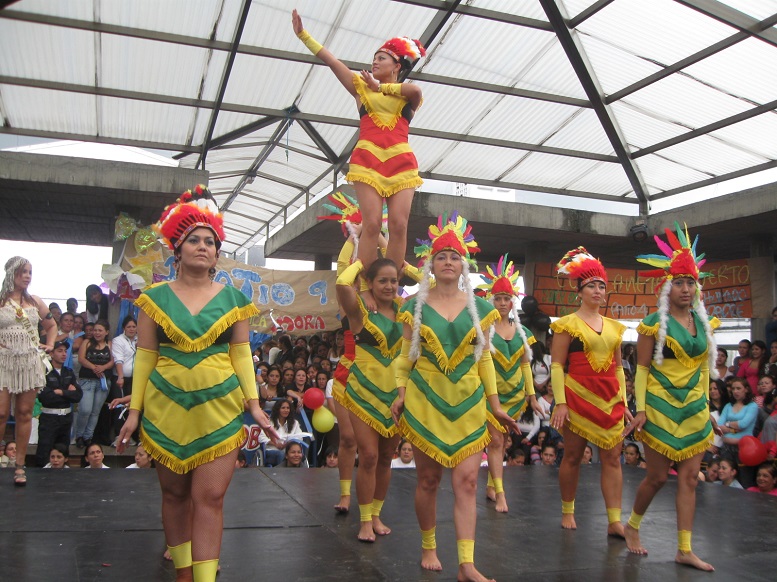
The beauty pageant at El Buen Pastor in Bogota, Colombia. Photo Credit: The Civilians.
GEORGINA: These stories were based on true events. How did that feed into building these characters?
JOSÉ: I selected the stories that I felt were the most compelling. A lot of the accounts were similar: terrible childhoods, betrayal by friends or lovers, poor decisions. And though these were all interesting, I was drawn to the most unique stories. For example, a woman told us how she was nearly stabbed to death and woke up at the morgue. I combined stories and characters. I fictionalized and enhanced them to make them more dramatic for the stage.
GEORGINA: Talk to us about collaborating with Héctor Buitrago, how did that come about?
JOSÉ: I met Héctor when Steve and I went to Colombia in 2011 to conduct the interviews at Buen Pastor Prison and to see the actual beauty pageant. We went to the prison together and immediately got to talking about the type of music that should be in the play. At that point, we didn’t know what the specifics were, but we talked about the overall feeling. We talked about using Mariachi, cumbia, reggaeton, rock and punk. Then Héctor went home to Bogotá, and I went home to New York, and he started writing songs as I was putting together the script. I began to imagine where the songs could be placed to truly enhance the story. I marked possible spots for music. We both knew this was not meant to be the typical American musical, where the songs are used to further the storytelling. He wrote the music and lyrics, which I was very happy about, because I am by no means a lyricist. Héctor’s music has inspired some beautiful choreography. A lot of the music functions to underscore scenes and transitions. I have to say, I’m a huge fan of Héctor’s, and I think his music is downright gorgeous and dramatic.
GEORGINA: Speaking of movement and underscore: What does the world of this piece sound like so far? Is it revolutionary? Refreshing? Melancholic? Talk about the soundscape and its emotional impact on your writing.
JOSÉ: What I love about the music he created is that it feels mythic and ritualistic. It celebrates women’s creative power. The music is more ritual than song; it feels like incantation and sorcery — especially the final song of the play, “Quisiera,” which really captures the sense of all of this.
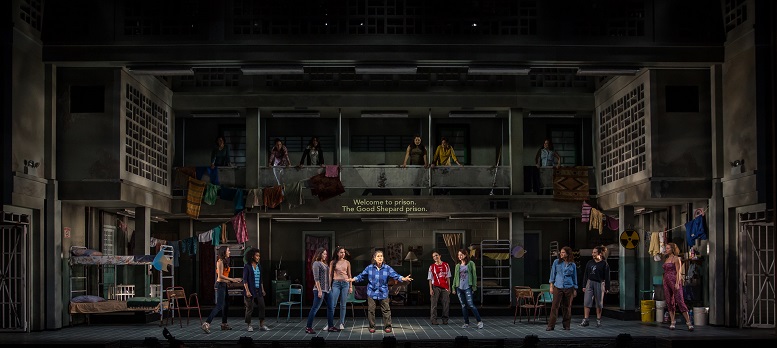
The cast of “Another Word for Beauty” at Goodman Theatre in Chicago. Photo Credit: Liz Lauren.
GEORGINA: What about the other language in the play? Is the play in English or Spanish? American Musical?
JOSÉ: The text is mostly in English with a sprinkling of Spanish, but the songs are in Spanish, and we flash translations of the songs on the stage. My dream would be to tour South America with this play, to translate it into Spanish and to actually perform it in the Buen Pastor prison.
GEORGINA: Often, as writers, we are faced with the question, “Why Now? What is it about ‘Another Word for Beauty’ that you feel is crucial to our ‘now?’”
JOSÉ: The political situation in the U.S. in the last seven or eight years has been very detrimental to Latinos. From the militias in Arizona to Trump calling Mexicans “rapists,” there’s a tidal wave of destructive and racist thinking about who we are. I think a play like this tells the other story, the human story, what compels people to do what they do. I don’t think you can come into this piece and leave unchanged. The idea in the play is that we have a humanity that connects us all and that all human behavior comes down to choices. Some of the women in the play are deeply affected by their circumstances. The play tries to capture the fact that these women are good people who made bad decisions. Why now? I would hope it would help de-mythologize who these people are, to give a human face to the people who are called “mules” and “communists.” A beauty pageant in a prison is a rich environment because of the juxtaposition of beauty and terror. Beauty and crime. What does it actually mean to be beautiful? In a world of violence and war and crime, does the word beauty even mean anything? The beauty pageant is fascinating because it has so many negative connotations — it has the ability of reducing women’s worth to the physical. To me, the irony is that the physical beauty that is talked about in the play is the least important kind of beauty, as far as I’m concerned. What’s more important to me is the beauty.
GEORGINA: Okay. I have some problems with the term “magical-realism” and often prefer to use multi-realism. Then again, I wrote a thesis titled “Playwright as Enchanter.” So I have a very deep interest in other-worldly dramas. So, is there magic in “Beauty?”
JOSÉ: (Laughs) Well. There is a ghost in my play — that qualifies as magic. A character speaks to her dead brother’s ghost. This, of course, is based on the true story of a man who was arrested while he was wearing a dress. The police thought he was a woman, so they sent him to the women’s prison. In the women’s prison, he was discovered to be a man and sent to the men’s prison, where he was tortured and raped. He eventually killed himself. I am very interested in the idea of where we come from, as well. The idea of home is very strong in this play. Everyone in this play is yearning for a place to feel safe. The exception is the narrator character, who was born in the prison and loves it. The other thing I write about is survival, what does it do to our humanity — to have to survive instead of live?
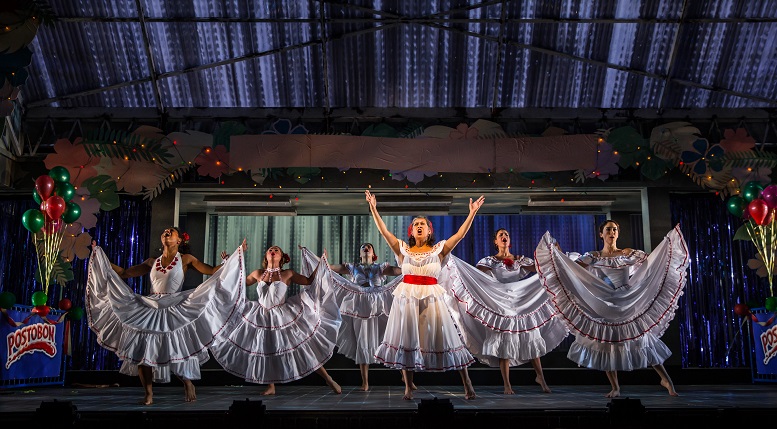
Danaya Esperanza (Luzmery), Carmen Zilles (Isabelle), Zoë Sophia Garcia (Nora), Socorro Santiago (Ciliana), Stephanie Andrea Barron (Yolanda) and Helen Cespedes (Xiomara) in “Another Word for Beauty” at Goodman Theatre in Chicago. Photo Credit: Liz Lauren.
GEORGINA: You are a trailblazer of the new American theater. Your plays and your legacy have opened doors and paths for many of us who come after you. As your career continues to develop so gracefully, can you share, what has surprised you about your own writing through the years? What made you start and what keeps you writing?
JOSÉ: At this point in my life, because I’m older, I realize that the stories I’m interested in are the stories of lifetimes. What does a life’s journey look like? My newest play takes a character from 18 to 48. I’m very interested in death, and sadly, you know, some very wonderful friends and members of my family have died recently. So I am very aware of the end of life and what that looks like. My very first play was about death. So I guess that’s been a constant. I’m very fascinated with the idea of home and what home is. Puerto Rico, where I was born, is not a country or a state. My plays examine the question of who are we and where we’re from, where our home is and the nature of the Puerto Rican diaspora. We are obviously American but not completely. That has always been in the back of my mind and a lot of my characters are wanderers without a place to call home. I’m also fascinated by the relationship between Latinos in the US and the US military. Growing up poor I’ve been interested in issues of poverty, domestic violence. But recently, it’s weird, you know I’m 60, and with David Bowie and Alan Rickman dying at 69 recently, I can’t help but think, “What if I only have nine years left? What would I write about?” I have a deep interest in mythology and rituals and my plays will always relate to that but I still feel like my best work is ahead of me. I hate thinking that my most creative works are behind me. I am as excited to write now as I was when I first started.
GEORGINA: Thank you, Jose, it’s been a pleasure! I hope to see you and “Another Word for Beauty” soon!
JOSÉ: Come to Chicago, it really is a great production. You’ll love it.
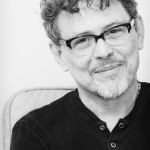
José Rivera is a recipient of two Obie Awards for playwriting for “Marisol” and “References to Salvador Dali Make Me Hot,” which were both produced by the Public Theater in New York. His plays, “Cloud Tectonics” (Playwrights Horizons and Goodman Theatre), “Boleros for the Disenchanted” (Yale Repertory Theatre and Goodman Theatre), “Sueño” (Manhattan Class Company), “Sonnets for an Old Century” (The Barrow Group), “School of the Americas” (The Public Theater), “Massacre (Sing to Your Children)” (Rattlestick and Goodman Theatre), “Brainpeople” (ACT, San Francisco), “Adoration of the Old Woman” (INTAR) and “The House of Ramon Iglesia” (Ensemble Studio Theatre), have been produced across the country and around the world. He is currently working on “The Last Book of Homer,” “Scream for the Lost Romantics” and “The Gamma Forest.” Mr. Rivera’s screenplay for “The Motorcycle Diaries” was nominated for a Best Adapted Screenplay Oscar in 2005. His screenplay based on Jack Kerouac’s “On the Road” premiered at the 2012 Cannes Film Festival and was distributed nationally in the winter of 2013. His film “Trade” was the first film to premiere at the United Nations. Television projects in the works include an untitled HBO pilot, co-written and produced by Tom Hanks, as well as a 10-hour series for HBO tentatively known as “Latino Roots.Celestina,” based on his play “Cloud Tectonics,” will mark his debut as a feature film director. He is the writer/director of the short film “Lizzy”and has recently completed his first novel, “Love Makes the City Crumble.” His next film project will be a biography of famed baseball player Roberto Clemente for Legendary Films.
“Another Word for Beauty” was originally commissioned and developed by Goodman Theatre and the Civilians. It opened on January 25 at the Goodman in Chicago and plays through February 21, 2016. It was written by José Rivera, with music and lyrics by Héctor Buitrago and direction by Steve Cosson. The cast includes Stephanie Andrea Barron as Yolanda, Helen Cespedes as Xiomara, Monique Gabriela Curnen as Marilin/Magnolia, Dan Domingues as Danny/Maurico/Arturo, Danaya Esperanza as Luzmery, Zoe Sophia Garcia as Nora, Marisol Miranda as Carmen/Tatiana, Yun Pardo as Jeimi, Socorro Santiago as Ciliana, Heather Velazquez as Maikelyn/Eva and Carmen Zilles as Isabelle. To purchase tickets, click here.
Post Views:
3,269






